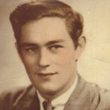Saturday, 24 March 2012
The Unforgettable Brain of an Amnesiac

The person who probably contributed more to our understanding of human memory than anyone else was Henry Molaison, who died on December 2, 2008 at the age of 82. No, Molaison wasn’t a neurologist. He was a patient who had both hippocampi surgically removed from his brain in 1953, when he was 27 years old, in an effort to reduce his severe epileptic seizures.
The operation succeeded in controlling his epilepsy, but had an unforeseen side effect: it took away his ability to remember new information about his life and the world (declarative memory). as well, thus revealing the extremely important role that the hippocampus plays in long-term memory. Subsequently, H.M. became the most studied patient in the history of neuroscience (he is known by his initials to protect his privacy), and he will continue to be studied for some time. Almost a year to the day after he died, his brain was sliced into nearly 2600 thin sections, which were than stained and captured in digital images that can now be accessed free of charge on the Internet. (more…)
Memory and the Brain | 1 comment







